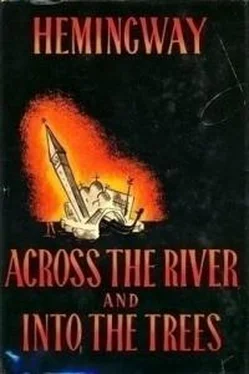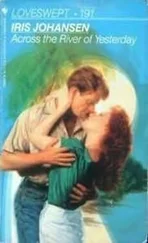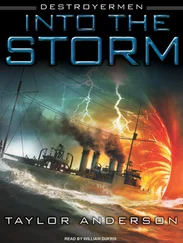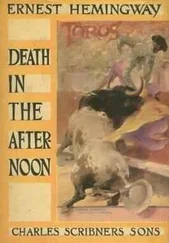The Colonel liked to study the spread and high piled cheeses and the great sausages. People at home think mortadella is a sausage, he thought.
Then he said to the woman in the booth, 'Let me try a little of that sausage, please. Only a sliver.'
She cut a thin, paper thin, slice for him, ferociously and lovingly, and when the Colonel tasted it there was the half smoky, black pepper–corned, true flavour of the meat from the hogs that ate acorns in the mountains.
'I will take a quarter of a kilo.'
The Barone's lunches for the shooting blinds were of a Spartan quality, which the Colonel respected, since he knew no one should eat much while shooting. He felt, though, that he might augment the lunch with his sausage and share it with the poler and picker–upper. He might give a slice to Bobby, the retriever, who would be wet through to his hide many times and enthusiastic still, but shaking with cold.
'Is this the best sausage that you have?' he asked the woman. 'Have you nothing that does not show and is reserved for better and steadier customers?'
'This is the best sausage. There are many other sausages, as you know. But this is the best.'
'Then give me one–eighth of a kilo of a sausage that is highly fortifying, but is not highly seasoned.'
'I have it,' she said. 'It is a little new but exactly as you describe.'
This sausage was for Bobby.
But you do not say that you buy sausages for a dog in Italy where the worst crime is to be considered a fool and many people go hungry. You may give expensive sausage to a dog before a man who works for his living and knows what a dog goes through in water in cold weather. But you do not buy them, stating your purpose in possessing them, unless you are a fool, or a millionaire from the war and from after.
The Colonel paid for the wrapped–up package and proceeded on through the market inhaling the smell of roasted coffee and looking at the amount of fat on each carcass in the butcher section, as though he were enjoying the Dutch painters, whose names no one remembers, who painted, in perfection of detail, all things you shot, or that were eatable.
A market is the closest thing to a good museum like the Prado or as the Accademia is now, the Colonel thought.
He took a short cut and was at the fish market.
In the market, spread on the slippery stone floor, or in their baskets, or their rope–handled boxes, were the heavy, grey–green lobsters with their magenta overtones that presaged their death in boiling water. They have all been captured by treachery, the Colonel thought, and their claws are pegged.
There were the small soles and there were a few albacore and bonito. These last, the Colonel thought, looked like boat–tailed bullets, dignified in death and with the huge eye of the pelagic fish.
They were not made to be caught except for their voraciousness. The poor sole exists, in shallow water, to feed man. But these other roving bullets, in their great bands, live in blue water and travel through all oceans and all seas.
A nickel for your thoughts now, he thought. Let's see what else they have.
There were many eels, alive and no longer confident in their eeldom. There were fine prawns that could make a scampi brochetto spitted and broiled on a rapier–like instrument that could be used as a Brooklyn ice–pick. There were medium–sized shrimps, grey and opalescent, awaiting their turn, too, for the boiling water and their immortality, to have their shucked carcasses float out easily on an ebb tide on the Grand Canal.
The speedy shrimp, the Colonel thought, with tentacles longer than the moustaches of that old Japanese admiral, comes here now to die for our benefit. Oh Christian shrimp, he thought, master of retreat, and with your wonderful intelligence service in those two light whips, why did they not teach you about nets and that lights are dangerous?
Must have been some slip–up, he thought.
Now he looked at the many small crustaceans, the razor–edge clams you only should eat raw if you had your typhoid shots up to date, and all the small delectables.
He went past these, stopping to ask one seller where his clams came from. They came from a good place, without sewerage, and the Colonel asked to have six opened. He drank the juice and cut the clam out, cutting close against the shell with the curved knife the man handed him. The man had handed him the knife because he knew from experience the Colonel cut closer to the shell than he had been taught to cut.
The Colonel paid him the pittance that they cost, which must have been much greater than the pittance those received who caught them, and he thought, now I must see the stream and canal fishes and get back to the hotel.
The colonel arrived at the lobby of the Hotel Gritti–Palace. His gondolieres were paid off and, now, inside the hotel, there was no wind.
It had taken two men to bring the gondola up the Grand Canal from the market. They had both worked hard, and he had paid them what it was worth, and some more.
'Are there any calls for me?' he asked the concierge, who was now in attendance.
The concierge was light, fast, sharp–faced, intelligent and polite, always, without subservience. He wore the crossed keys of his office on the lapels of his blue uniform without ostentation. He was the concierge. It is a rank very close to that of Captain, the Colonel thought. An officer and not a Gentleman. Make it top sergeant in the old days; except he's dealing always with the brass.
'My lady has called twice,' the concierge said in English. Or whatever that language should be called we all speak, the Colonel thought. Leave it at English. That is about what they have left. They should be allowed to keep the name of the language. Cripps will probably ration it shortly, anyway.
'Please put me through to her at once,' he told the concierge.
The concierge commenced to dial numbers.
'You may talk over there, my Colonel,' he said. 'I have made the connection.'
'You're fast.'
'Over there,' the concierge said.
Inside the booth the Colonel lifted the receiver and said, automatically, 'Colonel Cantwell speaking.'
'I called twice, Richard,' the girl said. 'But they explained that you were out. Where were you?'
'At the market. How are you, my lovely?'
'No one listens on this phone at this hour. I am your lovely. Whoever that is.'
'You. Did you sleep well?'
'It was like ski–ing in the dark. Not really ski–ing but really dark.'
'That's the way it should be. Why did you wake so early? You've frightened my concierge.'
'If it is not un–maidenly, how soon can we meet, and where?'
'Where you wish and when you wish.'
'Do you still have the stones and did Miss Portrait help any?'
'Yes to both questions. The stones are in my upper left–hand pocket and buttoned down. Miss Portrait and I talked late and early and it made everything much easier.'
'Do you love her more than me?'
'I'm not abnormal yet. Perhaps that's bragging. But she's lovely.'
'Where should we meet?'
'Should we have breakfast at the Florian, on the right–hand side of the square? The square should be flooded and it will be fun to watch.'
'I'll be there in twenty minutes if you want me.'
'I want you,' the Colonel said and hung up.
Coming out of the telephone booth he, suddenly, did not feel good and then he felt as though the devil had him in an iron cage, built like an iron lung or an iron maiden, and he walked, grey–faced, to the concierge's desk and said, in Italian, 'Domenico, Ico, could you get me a glass of water, please?'
The concierge was gone and he leaned on the desk resting. He rested lightly and without illusion. Then the concierge was back with the glass of water, and he took four tablets of the type that you take two, and he continued resting as lightly as a hawk rests.
Читать дальше
Конец ознакомительного отрывка
Купить книгу












